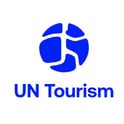UN Tourism Welcomes First Students to Sustainable Tourism Degree Course
UN Tourism has welcomed the first students enrolled on its pioneering degree course in International Sustainable Tourism.


Developed in collaboration with the Lucerne University of Applied Sciences and Arts (HSLU), the three-year Bachelor of Science in International Sustainable Tourism is designed to train graduates capable of leading the sector toward a more sustainable future.
For the first academic year, 30 students were welcomed to Madrid, representing six different countries (Kazakhstan, Uzbekistan, Saudi Arabia, Georgia, and Switzerland). The Degree course is designed to equip students equipped with the skills to innovate, to drive change, and to make decisions that promote both economic growth and environmental stewardship.
The tourism sector needs skilled people with diverse knowledge and innovative vision, and the Bachelor in International Sustainable Tourism was created to accompany tourism leaders on their journey into the future. With approximately 880,000 jobs in the tourism sector requiring specialised training annually by 2030, this degree programme is not just an educational initiative, but a transformative force. It is essential to cultivate the talent needed to drive the sector forward, ensuring sustainable growth and innovation. UN Tourism Executive Director, Natalia Bayona
UN Tourism: Prioritizing Education
Higher education is vital to building a sustainable tourism sector, a priority outlined in UN Tourism's educational roadmap. As one of the most dynamic and rapidly growing sectors, tourism holds a unique position as the largest employer of global youth, with over 50% of its workforce under the age of 25. However, despite this potential, young people face significant challenges. While youth make up 16% of the global population, more than one in five began this decade without being engaged in education, employment, or training. At the same time, the global tourism sector faces a shortage of skilled personnel, particularly in customer service and managerial roles.
This first undergraduate program from UN Tourism program represents a critical step towards bridging this gap. International diversity is achieved by targeting students from all over the world and with teaching taking place in Madrid Lucerne and online. Spain and Switzerland are two countries ranked among the top ten in the World Economic Forum's tourism competitiveness index—Spain being second and Switzerland tenth globally.
The vision of HSLU and UN Tourism is to create a universally accessible programme that empowers the future-oriented transformation of the entire tourism sector.
Related links:
About UN Tourism
The World Tourism Organization (UN Tourism) is the United Nations agency responsible for the promotion of responsible, sustainable and universally accessible tourism.
As the leading international organization in the field of tourism, UN Tourism promotes tourism as a driver of economic growth, inclusive development and environmental sustainability and offers leadership and support to the sector in advancing knowledge and tourism policies worldwide.
Our Priorities
Mainstreaming tourism in the global agenda: Advocating the value of tourism as a driver of socio-economic growth and development, its inclusion as a priority in national and international policies and the need to create a level playing field for the sector to develop and prosper.
Promoting sustainable tourism development: Supporting sustainable tourism policies and practices: policies which make optimal use of environmental resources, respect the socio-cultural authenticity of host communities and provide socio-economic benefits for all.
Fostering knowledge, education and capacity building: Supporting countries to assess and address their needs in education and training, as well as providing networks for knowledge creation and exchange.
Improving tourism competitiveness: Improving UN Tourism Members' competitiveness through knowledge creation and exchange, human resources development and the promotion of excellence in areas such as policy planning, statistics and market trends, sustainable tourism development, marketing and promotion, product development and risk and crisis management.
Advancing tourism's contribution to poverty reduction and development: Maximizing the contribution of tourism to poverty reduction and achieving the SDGs by making tourism work as a tool for development and promoting the inclusion of tourism in the development agenda.
Building partnerships: Engaging with the private sector, regional and local tourism organizations, academia and research institutions, civil society and the UN system to build a more sustainable, responsible and competitive tourism sector.
Our Structure
Members: An intergovernmental organization, UN Tourism has 160 Member States, 6 Associate Members, 2 Observers and over 500 Affiliate Members.
Organs: The General Assembly is the supreme organ of the Organization. The Executive Council take all measures, in consultation with the Secretary-General, for the implementation of the decisions and recommendations of the General Assembly and reports to the Assembly.
Secretariat: UN Tourism headquarters are based in Madrid, Spain. The Secretariat is led by the Secretary-General and organized into departments covering issues such as sustainability, education, tourism trends and marketing, sustainable development, statistics and the Tourism Satellite Account (TSA), destination management, ethics and risk and crisis management. The Technical Cooperation and Silk Road Department carries out development projects in over 100 countries worldwide, while the Regional Departments for Africa, the Americas, Asia and the Pacific, Europe and the Middle East serve as the link between UN Tourism and its 160 Member States. The Affiliate Members Department represents UN Tourism's 500 plus Affiliate members.
UN Tourism Communications Department
+34 91 567 8100
UN Tourism
